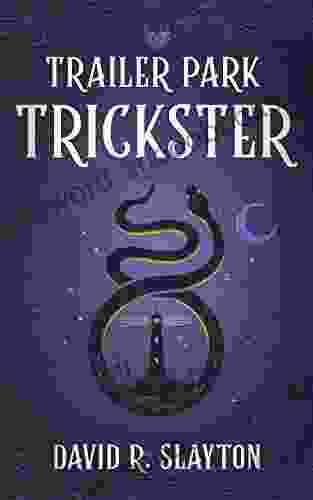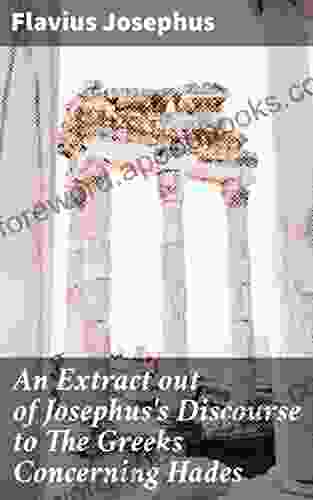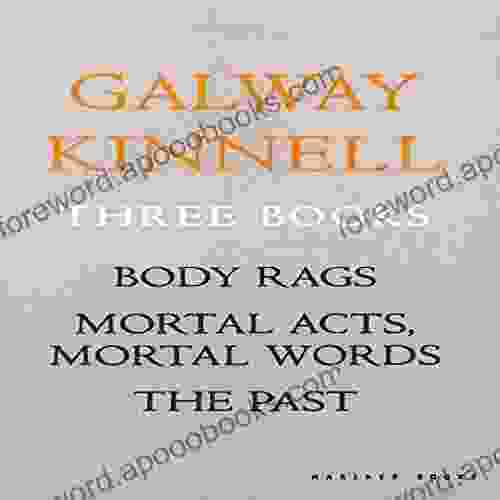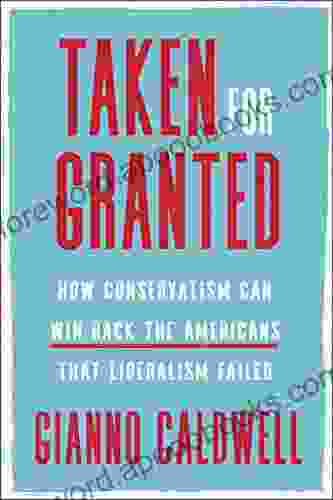An Extract Out Of Josephus Discourse To The Greeks Concerning Hades: Unveiling the Enigma of the Afterlife

The realm of Hades, the ancient Greek underworld, has captivated human imagination for centuries. shrouded in mystery and awe, this subterranean domain has been the subject of countless myths, legends, and philosophical contemplations. Among the most significant accounts of Hades comes from the writings of Josephus, a renowned Jewish historian who lived in the first century CE.
In his discourse to the Greeks, Josephus provides a detailed and fascinating description of Hades, drawing upon both Greek mythology and Jewish tradition. His insights offer a unique glimpse into the beliefs and practices surrounding the afterlife in the ancient world.
4 out of 5
| Language | : | English |
| File size | : | 1816 KB |
| Text-to-Speech | : | Enabled |
| Screen Reader | : | Supported |
| Enhanced typesetting | : | Enabled |
| Word Wise | : | Enabled |
| Print length | : | 18 pages |
Josephus's Account of Hades
According to Josephus, Hades is a vast and gloomy region located beneath the earth, divided into different compartments or "mansions." Each mansion is inhabited by a specific group of souls, based on their virtues or vices during their earthly lives.
The righteous reside in a place of eternal bliss, while the wicked are tormented in a realm of perpetual darkness and fire. Josephus describes the punishments of the wicked in vivid detail, including being bound in unbreakable chains, flayed alive, and roasted on burning wheels.
In contrast, the righteous enjoy a life of peace and happiness in the presence of God. They dwell in a paradise-like garden, where they are free from all pain and suffering. Josephus emphasizes the importance of living a virtuous life in Free Download to attain this blissful afterlife.
The Rituals and Mysteries of Hades
Josephus also describes the various rituals and mysteries associated with Hades. He mentions the ancient Greek practice of burying the dead with coins, which were believed to pay the ferryman Charon for passage across the river Styx, which separated the world of the living from the underworld.
Josephus also discusses the secret mysteries of the Eleusinian cult, which promised its initiates a more favorable afterlife. These mysteries involved elaborate rituals and ceremonies, designed to purify the soul and prepare it for its journey to the underworld.
The Philosophical Implications of Hades
Beyond its religious significance, the concept of Hades also had profound philosophical implications in ancient Greece. Hades represented the inevitability of death and the transience of human life. It served as a reminder that even the most powerful and wealthy individuals could not escape the fate that awaited them in the afterlife.
The belief in Hades also influenced Greek ethical thought. The fear of eternal punishment in the underworld motivated many people to live virtuous lives and avoid wrongng. Conversely, the hope of a blissful afterlife provided comfort and solace to those who faced adversity in this world.
Josephus's discourse to the Greeks concerning Hades offers a captivating and insightful account of the ancient Greek underworld. His descriptions of the punishments of the wicked and the rewards of the righteous provide a glimpse into the beliefs and practices surrounding death and the afterlife in the ancient world.
Beyond its religious and philosophical significance, Hades remains a powerful and enduring symbol of the human fascination with the unknown. It represents the final frontier, the realm of mystery that lies beyond the boundaries of our mortal existence. Josephus's discourse invites us to contemplate the nature of death, the afterlife, and the choices we make in this life that will shape our eternal destiny.
4 out of 5
| Language | : | English |
| File size | : | 1816 KB |
| Text-to-Speech | : | Enabled |
| Screen Reader | : | Supported |
| Enhanced typesetting | : | Enabled |
| Word Wise | : | Enabled |
| Print length | : | 18 pages |
Do you want to contribute by writing guest posts on this blog?
Please contact us and send us a resume of previous articles that you have written.
 Book
Book Novel
Novel Page
Page Chapter
Chapter Text
Text Story
Story Genre
Genre Reader
Reader Library
Library Paperback
Paperback E-book
E-book Magazine
Magazine Newspaper
Newspaper Paragraph
Paragraph Sentence
Sentence Bookmark
Bookmark Shelf
Shelf Glossary
Glossary Bibliography
Bibliography Foreword
Foreword Preface
Preface Synopsis
Synopsis Annotation
Annotation Footnote
Footnote Manuscript
Manuscript Scroll
Scroll Codex
Codex Tome
Tome Bestseller
Bestseller Classics
Classics Library card
Library card Narrative
Narrative Biography
Biography Autobiography
Autobiography Memoir
Memoir Reference
Reference Encyclopedia
Encyclopedia David Doran
David Doran David Collison
David Collison Ian Crockatt
Ian Crockatt Jim Barrow
Jim Barrow Richard H Zeitlin
Richard H Zeitlin Siri M Zwemke
Siri M Zwemke Roger Jewett
Roger Jewett Robert Berkelhammer
Robert Berkelhammer David Ebershoff
David Ebershoff Debra Berndt
Debra Berndt Robert J Mckee
Robert J Mckee Tina Cassidy
Tina Cassidy Guido Meda
Guido Meda Phyllis Reynolds Naylor
Phyllis Reynolds Naylor Graham Robson
Graham Robson Julie Buckner Armstrong
Julie Buckner Armstrong David Keidar Indio
David Keidar Indio Joy Skye
Joy Skye Vincent Valentean
Vincent Valentean David Mitchell
David Mitchell
Light bulbAdvertise smarter! Our strategic ad space ensures maximum exposure. Reserve your spot today!

 Cade SimmonsEmbark on a Geometric Quilt-Making Odyssey with "Basic Edition Quilt Design...
Cade SimmonsEmbark on a Geometric Quilt-Making Odyssey with "Basic Edition Quilt Design... Henry JamesFollow ·16.1k
Henry JamesFollow ·16.1k Emanuel BellFollow ·13.1k
Emanuel BellFollow ·13.1k Hayden MitchellFollow ·11.3k
Hayden MitchellFollow ·11.3k Ethan MitchellFollow ·14.3k
Ethan MitchellFollow ·14.3k J.R.R. TolkienFollow ·16.5k
J.R.R. TolkienFollow ·16.5k Gary ReedFollow ·3k
Gary ReedFollow ·3k Jesse BellFollow ·19.5k
Jesse BellFollow ·19.5k Forrest ReedFollow ·19.3k
Forrest ReedFollow ·19.3k

 Douglas Powell
Douglas PowellEscape into a World of Sweet Love and Second Chances with...
Prepare yourself...

 Garrett Powell
Garrett PowellMaster Badminton: A Comprehensive Guide to the Thrilling...
Are you ready to step into the world of...

 Deacon Bell
Deacon BellTrailer Park Trickster: The Adam Binder Novels
Book 1: The...

 Oscar Bell
Oscar BellLeo: The Very Modern Taoiseach
Leo Varadkar's journey...
4 out of 5
| Language | : | English |
| File size | : | 1816 KB |
| Text-to-Speech | : | Enabled |
| Screen Reader | : | Supported |
| Enhanced typesetting | : | Enabled |
| Word Wise | : | Enabled |
| Print length | : | 18 pages |














